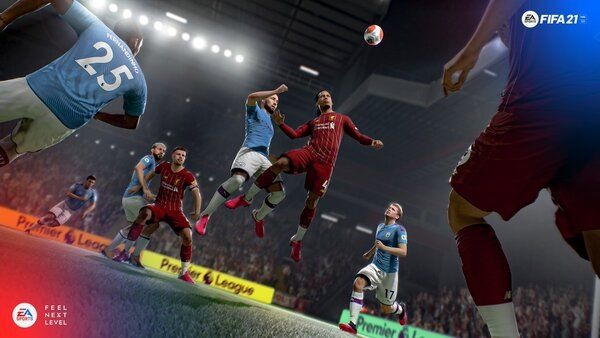
For over two decades, the “FIFA” series by EA Sports has been a dominant force in sports gaming. Each annual release excites millions of fans with improved gameplay, enhanced graphics, and updated player rosters. However, in recent years, the franchise’s focus has shifted dramatically with the rise of Ultimate Team. This game mode, centered around collecting virtual player cards, has not only become “FIFA’s” most popular feature but also a major source of controversy. The introduction of microtransactions has fueled debates on gambling, fairness, and the overall impact on the gaming community. This article explores the evolution of microtransactions in “FIFA,” the ethical concerns they raise, and their broader industry implications.
The Rise of Ultimate Team and Microtransactions
The Birth of Ultimate Team: From Add-On to Core Feature
Ultimate Team debuted as a DLC for “FIFA 09,” allowing players to build dream squads using virtual cards acquired through gameplay. Initially, microtransactions were minor, with in-game currency being the primary method of acquiring new cards. However, its popularity quickly grew, leading EA to integrate it as a mainstay in “FIFA 11” and beyond. Over time, Ultimate Team evolved into the franchise’s focal point, with microtransactions playing an increasingly dominant role.
Monetization Strategies: FIFA Points and Randomized Packs
To capitalize on Ultimate Team’s success, EA introduced FIFA Points, a premium currency bought with real money. These points allow players to purchase packs containing randomly assigned players. The thrill of acquiring rare superstars like Messi or Ronaldo has driven many players to spend substantial amounts on packs. The system’s randomness, akin to gambling mechanics, has sparked significant ethical concerns and regulatory scrutiny.
The Pay-to-Win Effect: Competitive Imbalance
Microtransactions have significantly influenced “FIFA’s” competitive landscape. Players willing to spend large sums on FIFA Points gain access to elite players faster, creating an unfair advantage in online modes. This “pay-to-win” dynamic has alienated casual players, who struggle to compete against heavily funded teams. As a result, the community has become increasingly divided between those who spend money on the game and those who rely solely on grinding for in-game currency.
The Ethics of Microtransactions in FIFA
Gambling Concerns: Loot Boxes and Legal Debates
Critics argue that Ultimate Team’s randomized packs function as a form of gambling, particularly when players use real money to purchase them. Regulatory bodies in countries like Belgium and the Netherlands have banned loot boxes in video games, forcing EA to modify Ultimate Team’s mechanics in those regions. However, in many other countries, legal and ethical debates over microtransactions remain unresolved.
Advestisment
The Psychological Impact: Addiction and Spending Habits
The addictive nature of FIFA Points has raised concerns, especially for younger players. Cases of minors unknowingly spending large sums on microtransactions have highlighted the financial risks associated with these systems. While EA has introduced parental controls and pack probability disclosures, critics argue that these measures do not sufficiently address the issue.
Impact on Gameplay and Community
The Shift in Player Behavior: Grinding, Trading, and Third-Party Markets
With microtransactions dominating Ultimate Team, players have adopted alternative strategies to acquire top-tier cards without spending real money. Many resort to excessive grinding, engaging in repetitive matches to earn in-game currency. Others turn to trading within the game’s transfer market. However, the high demand for FIFA coins has also fueled black-market transactions, leading to account bans and further controversy.
Influence of Streamers and Content Creators
YouTube and Twitch have played a pivotal role in shaping how players engage with Ultimate Team. Many influencers produce pack-opening videos, glorifying the thrill of obtaining rare players while normalizing microtransactions. This exposure encourages more spending, reinforcing the cycle of monetization.
EA’s Response and the Future of Microtransactions
Defending the Model: EA’s Stance
EA maintains that microtransactions are optional and that players can enjoy “FIFA” without spending money. The company argues that Ultimate Team is only one of several game modes and that microtransactions enhance variety rather than create an unfair advantage. To improve transparency, EA has introduced pack odds disclosures and preview packs, allowing players to see a pack’s contents before purchasing.
Industry-Wide Influence and Regulatory Pressures
“FIFA’s” microtransaction model has inspired similar monetization strategies in other sports games like “NBA 2K” and “Madden NFL.” The widespread adoption of microtransactions has normalized them across the gaming industry, despite ongoing backlash. However, increasing regulatory scrutiny and player dissatisfaction may force developers to rethink their approaches to in-game purchases.
Conclusion
The controversy surrounding microtransactions in “FIFA” highlights broader challenges within the gaming industry. While EA Sports defends the practice as an optional feature, critics argue that it fosters gambling-like behaviors and creates an unfair playing field. As governments, players, and developers continue to debate the ethics of microtransactions, the future of gaming monetization remains uncertain. Regardless of how the industry evolves, the lessons learned from “FIFA’s” microtransaction model will shape the future of game design and regulation.
